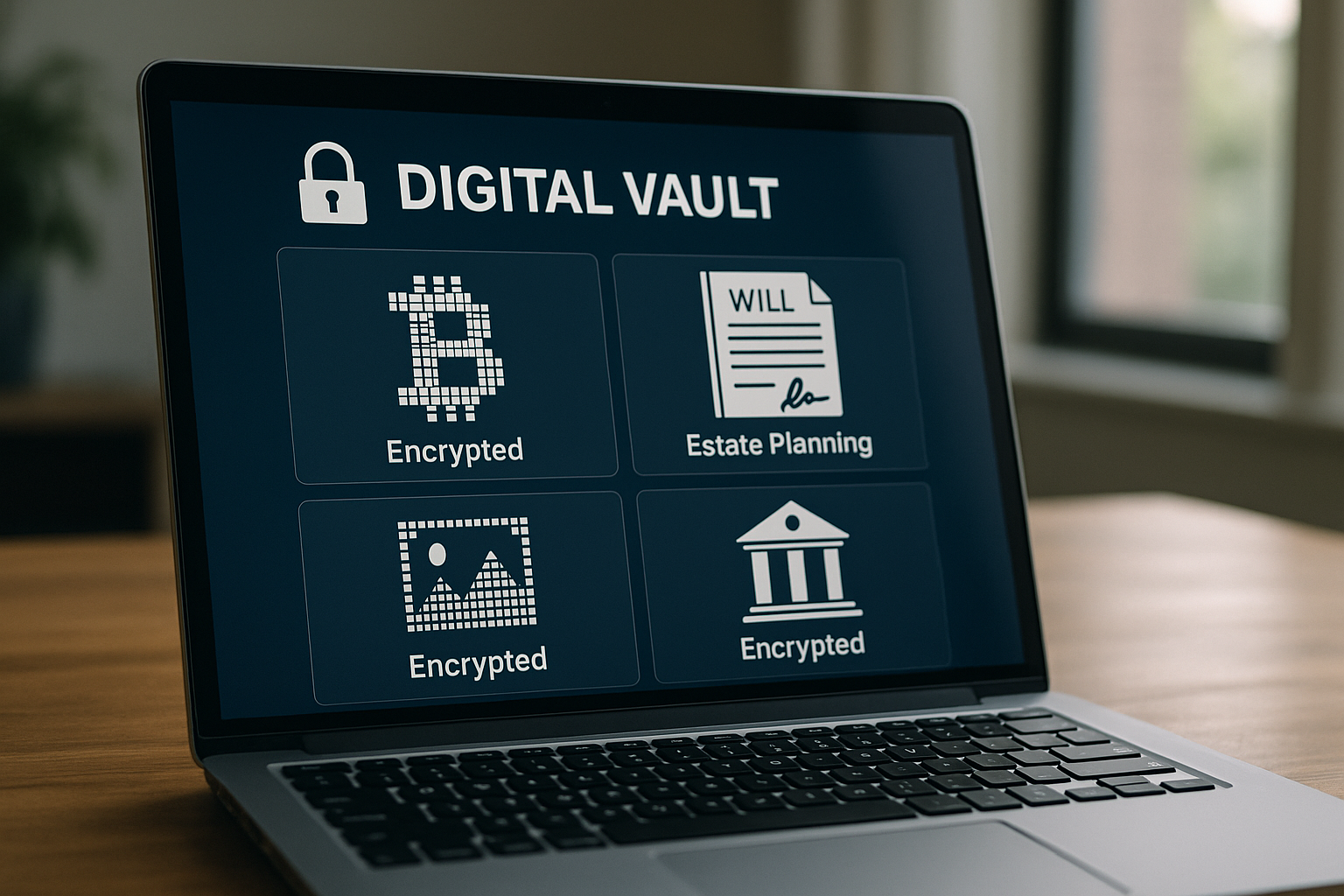Secure Your Legacy With Digital Assets Estate Planning
Imagine securing your family's future by ensuring your digital assets are preserved and passed on seamlessly—browse options now to protect your legacy with the latest in digital estate planning.

Understanding Digital Assets Estate Planning
In today's digital age, your online presence and assets are just as valuable as your physical ones. Digital assets estate planning involves organizing and managing digital properties like social media accounts, digital currencies, online subscriptions, and cloud storage, so they can be effectively transferred to your heirs. This process not only ensures that your digital assets are protected but also prevents data breaches and identity theft after you're gone.
The Importance of Digital Assets in Modern Estate Planning
With the average person owning dozens of online accounts, the value of digital assets can be substantial. For instance, if you own cryptocurrency, its value can fluctuate significantly, impacting the overall worth of your estate. Additionally, sentimental items like family photos stored online have immeasurable value. Proper planning ensures these assets are accessible and managed according to your wishes.
Steps to Secure Your Digital Legacy
To begin, take an inventory of all your digital assets. This includes email accounts, social media profiles, online banking, investment accounts, and any digital subscriptions. Next, decide who will manage these assets by designating a digital executor in your will. A digital executor is responsible for handling your digital estate and ensuring your wishes are carried out.
It's crucial to include detailed instructions on how to access these assets, such as listing usernames and passwords in a secure location. Consider using a password manager to safely store and share this information with your designated executor. Additionally, specify your wishes for each account, whether it's to memorialize, delete, or transfer ownership.
Legal Considerations and Tools
Different jurisdictions have varying laws regarding digital assets, making it essential to consult with an estate planning attorney familiar with digital estate laws. Some states have enacted laws like the Revised Uniform Fiduciary Access to Digital Assets Act (RUFADAA), which provides guidelines for managing digital assets after death1.
Several tools and services can assist in digital estate planning. For example, platforms like Google and Facebook offer legacy contact options, allowing you to designate someone to manage your account posthumously. Additionally, specialized services such as Everplans and GoodTrust provide comprehensive digital estate planning solutions23.
Real-World Implications and Benefits
Proper digital estate planning can prevent financial losses and emotional distress for your loved ones. For instance, without access to your online banking, your family might face challenges settling debts or accessing funds. Additionally, managing your digital assets can prevent unauthorized access and potential fraud, ensuring your family's security.
Moreover, by planning ahead, you can preserve your digital legacy, allowing future generations to access family history and memories stored online. This foresight not only protects your assets but also honors your legacy.
As you navigate the complexities of digital estate planning, explore the various options available to safeguard your digital assets. By doing so, you ensure a seamless transition, providing peace of mind for both you and your loved ones.